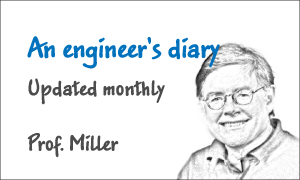Hideaki Ueda
Reliability Group, Research Center, Research & Development Center, YANMAR CO., LTD.
Abstract
As internal combustion engines have been made lighter in recent years with higher outputs, there is a trend toward higher loads being imposed on engine components, for example crankshaft. As a result, to improve the resistance to abrasion and fatigue strength, heat treatment has been done such as induction hardening.
During the induction hardening, changes of material phase and stress-strain due to temperature are occurred. Because these changes have interaction, it is difficult to predict deformation and residual stress. So, in many case, heat treatment condition is derived by the experience or trial-and-error.To solve this situation, in this work, analysis technology to reproduce changes of temperature, phase fraction and stress-strain is built, and predict the residual stress.
You need to sign in as a Regular JMAG Software User (paid user) or JMAG WEB MEMBER (free membership).
By registering as a JMAG WEB MEMBER, you can browse technical materials and other member-only contents for free.
If you are not registered, click the “Create an Account” button.
Create an Account Sign in



